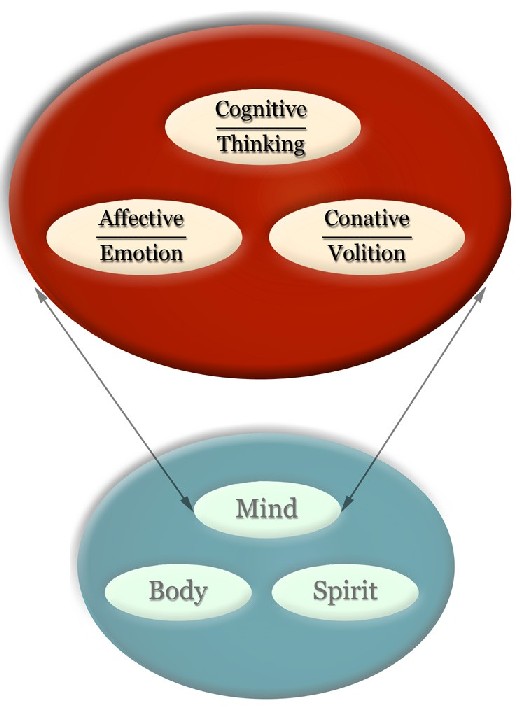
Developed by: W. Huitt
Last Modified: December 2002
Return to: | Overview of Systems Model | Home Page |
The component of the systems model shown below shows the individual and is adapted from Eysenck (1947), Miller (1991), Norman (1980) and others. It identifies three components of the mind to organize many of the major issues and topics discussed in educational psychology. This model recognizes that the mind receives information and displays action through the body; and considers both biological and spiritual influences on the development and functioning of the components of mind. It also recognizes there is a feedback loop between overt responses (or "behavior") and resulting stimuli from the environment

There are therefore four major components of the individual in this systems model of human behavior
- Cognitive system -- Perceives, stores, processes, and retrieves information
- Affective system -- Can modify perceptions and thoughts before and after they are processed cognitively
- Conative system -- Directs and manages input and output functioning
- Behavioral system -- Overt action of organism (output of the individual)
It is hypothesized that an individual's thinking (cognition), feeling (affect), and willing (volition, conation) as well as overt behavior develop as a result of:
- transactions among the various components of mind as
- influenced by biological maturation, bodily functioning and the spiritual dimension of the individual,
- the environment or context of the individual, and
- the feedback from the environment as a result of an individual's overt behavior
Continue on to The Context of Development
Return to: